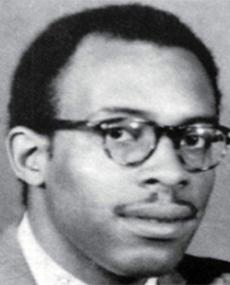
Fabian Defu Ribeiro was born on the 19th of June 1933 in Bantule, he was the third child of Joseph and Katherine Ribeiro (nee Mothibe). His father came from Beira, Mozambique and passed away in 1942. His mother, who came from Brits, passed away in 1975.
He completed his first six years of schooling at the Jane Furst School in Glen Cowie, and from standard six to standard nine attended school in Lesotho in preparation for priesthood in the Roman Catholic Church. Ribeiro changed his mind regarding the priesthood and matriculated in Inkemane, Natal in 1950, where he also met his future wife, Florence Mathe.
Ribeiro started his studies in 1951 at Fort Hare and completed a BSc degree after which he started studying medicine at the University of Natal in 1954. He completed his internship at the King Edward Hospital in Durban in 1959. During his fifth year of study he married Florence Barbara Mathe and the couple lived in Chesterville while he completed his studies.
They had one daughter and three sons. In 1960, in partnership with two other doctors, he opened a practice in Welkom and some months later he opened a surgery at his home in Lady Selbourne, Pretoria. 1961 saw the opening of a new practice in Mamelodi, where he worked until his death on 1 December 1986.
Although Ribeiro had decided against joining the priesthood he remained a devoted practising Catholic and donated generously to his local church. He even bought an organ, which is still in use today. Over the years Fabian and Florence Ribeiro helped young people in exile through donations of money and contacts and assisted a number of children in obtaining a good education. Ribeiro opened a practice in the Winterveld, a very poor area during that time, and treated patients for free.
During the 1970’s he recorded as much evidence of police brutality as possible by taking pictures of victims who came to him for treatment. He also made a series of videotapes that found their way overseas. A well-known video, ‘Witness to apartheid’, was shot in absolute secrecy. In 1980 he was imprisoned for a few months on charges of treason, but was successfully defended by George Bizos. In March 1986 a petrol bomb was thrown through a window on the top floor of the Ribeiro house. He and his wife escaped unhurt, but the house was destroyed. The couple became aware of a number of unsuccessful attempts on their lives and considered leaving the country, but decided to stay.
On 1st December 1986 Fabian and Florence Barbara Ribeiro were gunned down in their courtyard and in 1997 the Truth and Reconciliation Commission (TRC) found that they had been assassinated by agents of the state. Amnesty was granted to their killers in 1999 by the TRC Amnesty Committee. A school in Mamelodi, the F.F. Ribeiro School was named after them, as well as the street where they used to live.